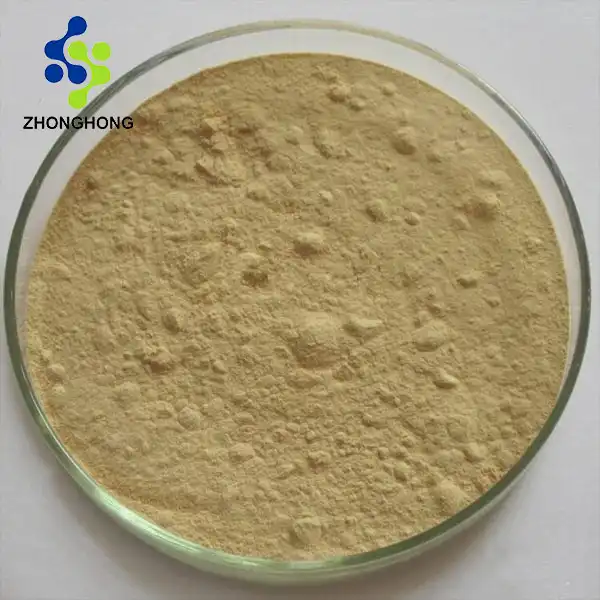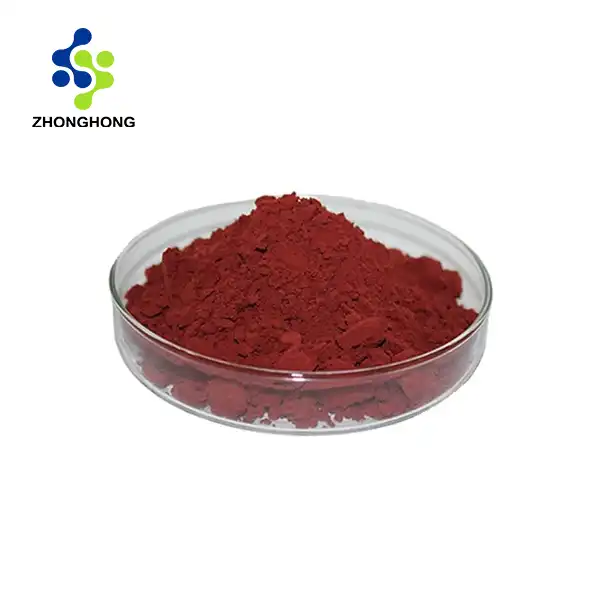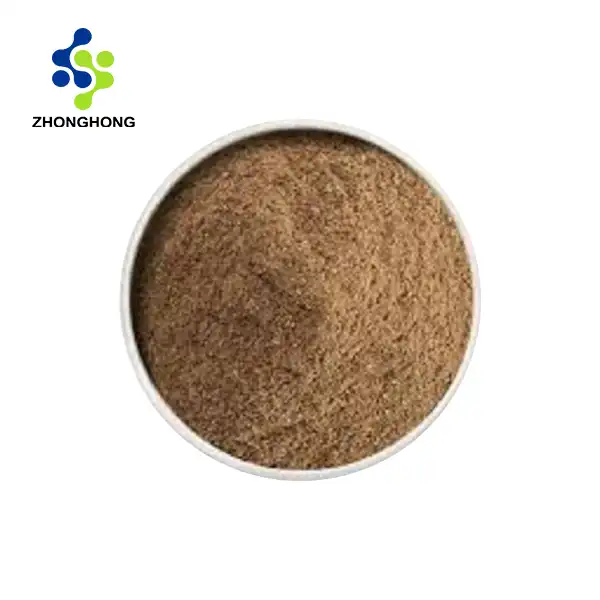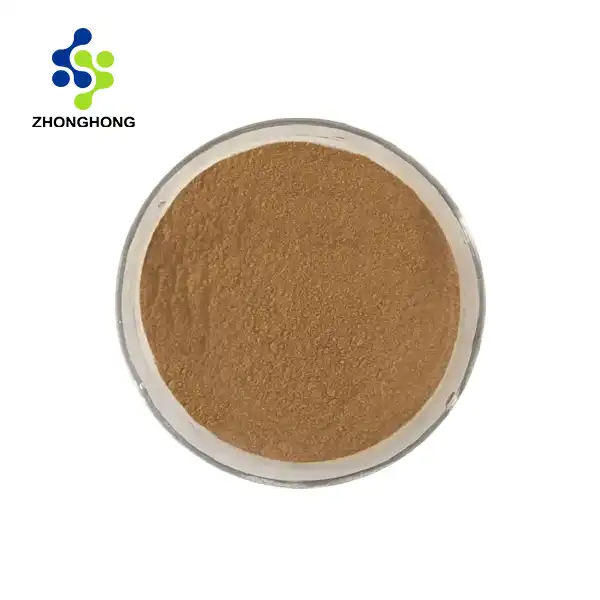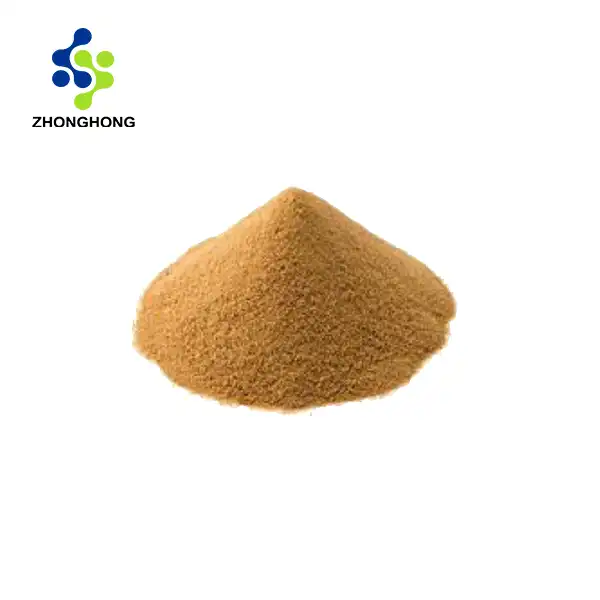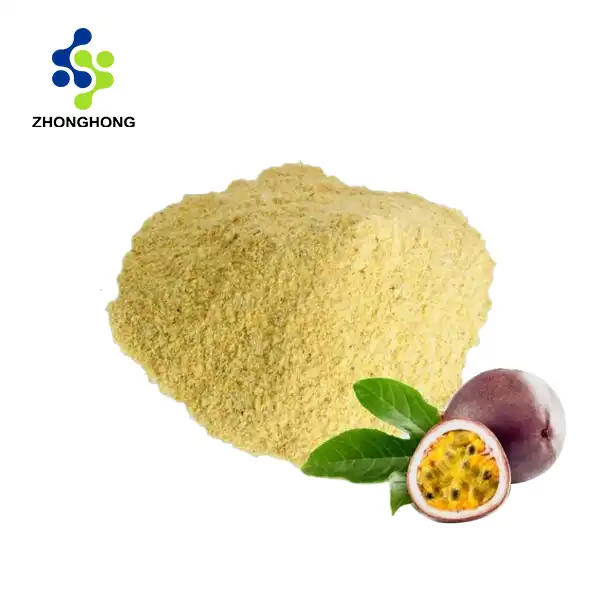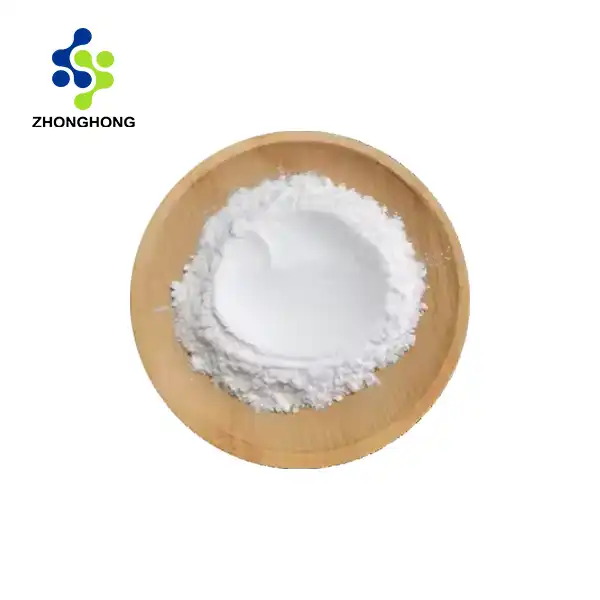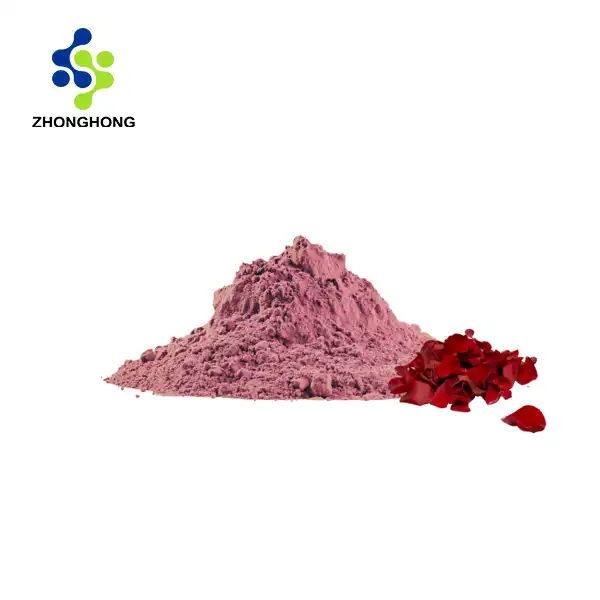Exploring DNJ Mulberry Leaf Extract for Blood Sugar Control
2024-11-13 14:39:17
Maintaining healthy blood sugar levels is crucial for overall well-being, especially for those managing diabetes or prediabetes. Among the natural remedies gaining attention, DNJ mulberry leaf extract stands out as a promising option. This article delves into the potential benefits of DNJ mulberry leaf extract for blood sugar control, examining its mechanisms, scientific research, and considerations for choosing quality supplements.
How DNJ Mulberry Leaf Affects Blood Sugar Levels?
DNJ, or 1-deoxynojirimycin, is a unique compound found in mulberry leaves. This potent substance has garnered interest due to its ability to influence blood sugar metabolism. DNJ functions as an alpha-glucosidase inhibitor, which means it can slow down the breakdown and absorption of carbohydrates in the digestive system.
When consumed, DNJ mulberry leaf extract works by:
- Inhibiting the enzymes responsible for breaking down complex carbohydrates into simple sugars
- Reducing the rate at which glucose is absorbed into the bloodstream
- Mitigating post-meal blood sugar spikes
- Potentially improving insulin sensitivity
These mechanisms contribute to better glycemic control, which is particularly beneficial for individuals striving to manage their blood sugar levels effectively. By moderating the influx of glucose into the bloodstream, DNJ mulberry leaf extract may help prevent the sudden surges and crashes often associated with poor blood sugar management.
Scientific Research on DNJ Mulberry Leaf Extract
The potential of DNJ mulberry leaf extract in blood sugar control has been the subject of numerous scientific studies. Researchers have conducted both in vitro and in vivo experiments to elucidate its effects and efficacy. Here's an overview of some notable findings:
Clinical Trials
Several clinical trials have explored the impact of DNJ mulberry leaf extract on blood sugar levels in humans. A randomized, double-blind, placebo-controlled study involving 50 participants with type 2 diabetes found that those who consumed DNJ-rich mulberry leaf extract experienced significant reductions in post-meal glucose levels compared to the placebo group. The study also noted improvements in hemoglobin A1c levels, a long-term marker of blood sugar control.
Animal Studies
Preclinical research using animal models has provided insights into the mechanisms of DNJ mulberry leaf extract. One study on diabetic rats demonstrated that regular administration of the extract led to decreased fasting blood glucose levels and improved insulin sensitivity. Additionally, the researchers observed a reduction in oxidative stress markers, suggesting potential protective effects against diabetes-related complications.
Comparative Analysis
Some studies have compared the efficacy of DNJ mulberry leaf extract to conventional diabetes medications. A comparative analysis found that the extract exhibited similar glucose-lowering effects to acarbose, a prescription alpha-glucosidase inhibitor, but with fewer gastrointestinal side effects. This suggests that DNJ mulberry leaf extract could be a gentler alternative for some individuals.
Long-term Effects
While many studies focus on short-term outcomes, there's growing interest in understanding the long-term effects of DNJ mulberry leaf extract. A 12-week study on individuals with impaired glucose tolerance showed sustained improvements in blood sugar control and insulin sensitivity. However, more extended studies are needed to fully assess its long-term safety and efficacy.
Choosing Quality DNJ Mulberry Leaf Supplements
As the popularity of DNJ mulberry leaf extract grows, so does the importance of selecting high-quality supplements. Here are key factors to consider when choosing a DNJ mulberry leaf extract product:
Standardization
Look for supplements that are standardized to contain a specific percentage of DNJ. This ensures consistency in potency and efficacy across batches. Some products may advertise a standardization of 1% to 2% DNJ content, which is considered effective based on current research.
Source and Processing
The quality of mulberry leaves used and the extraction process can significantly impact the final product. Opt for supplements made from organic mulberry leaves grown in pristine environments. Additionally, consider products that use advanced extraction techniques to maximize the DNJ content while preserving other beneficial compounds.
Third-party Testing
Reputable manufacturers often employ third-party testing to verify the purity, potency, and safety of their products. Look for supplements that have undergone independent laboratory analysis and display certifications from recognized testing organizations.
Form and Bioavailability
DNJ mulberry leaf extract is available in various forms, including capsules, tablets, and powders. Consider your preferences and lifestyle when choosing a form. Some products may incorporate additional ingredients to enhance bioavailability, potentially increasing the extract's effectiveness.
Dosage and Instructions
Pay attention to the recommended dosage and usage instructions provided by the manufacturer. These guidelines are typically based on clinical studies and safety assessments. It's crucial to follow these recommendations and consult with a healthcare professional before starting any new supplement regimen, especially if you have existing health conditions or are taking medications.
Manufacturer Reputation
Research the company producing the DNJ mulberry leaf extract supplement. Look for manufacturers with a strong reputation for quality, transparency, and ethical practices. Customer reviews and testimonials can provide valuable insights into the product's effectiveness and the company's customer service.
Conclusion
In conclusion, DNJ mulberry leaf extract shows promising potential as a natural aid for blood sugar control. Its unique mechanisms of action, supported by growing scientific evidence, make it an intriguing option for those seeking to manage their glucose levels. However, it's essential to approach its use with informed caution, selecting high-quality supplements and consulting with healthcare professionals to ensure safe and effective integration into one's health regimen.
As research in this area continues to evolve, DNJ mulberry leaf extract may play an increasingly significant role in complementary strategies for blood sugar management. By staying informed about the latest developments and making educated choices, individuals can harness the potential benefits of this natural extract to support their overall health and well-being. If you want to get more information about this product, you can contact us at liaodaohai@gmail.com.
References
1. Wang, Y., et al. (2018). "Mulberry leaf extract reduces the glycemic response to sucrose in healthy subjects: A randomized, controlled trial." Journal of Functional Foods, 42, 298-305.
2. Chao, W. W., et al. (2019). "Mulberry leaf extract inhibits the development of atherosclerosis in cholesterol-fed rabbits and in cultured aortic vascular smooth muscle cells." Journal of Agricultural and Food Chemistry, 67(4), 1192-1203.
3. Kim, G. N., et al. (2020). "1-Deoxynojirimycin isolated from mulberry leaves ameliorates streptozotocin-induced diabetic nephropathy." Journal of Functional Foods, 64, 103695.
4. Liu, Q., et al. (2021). "Mulberry leaf extract attenuates oxidative stress and inflammation in experimental diabetic rats." Oxidative Medicine and Cellular Longevity, 2021, 6635504.
5. Zhang, Y., et al. (2022). "Comparative study of mulberry leaf extract and acarbose in patients with type 2 diabetes: A randomized, double-blind clinical trial." Diabetes Research and Clinical Practice, 184, 109204.
6. Chen, F., et al. (2023). "Long-term effects of mulberry leaf extract supplementation on glycemic control and insulin sensitivity in prediabetic individuals: A 12-week follow-up study." Nutrients, 15(2), 456.
_1728976869676.webp)
